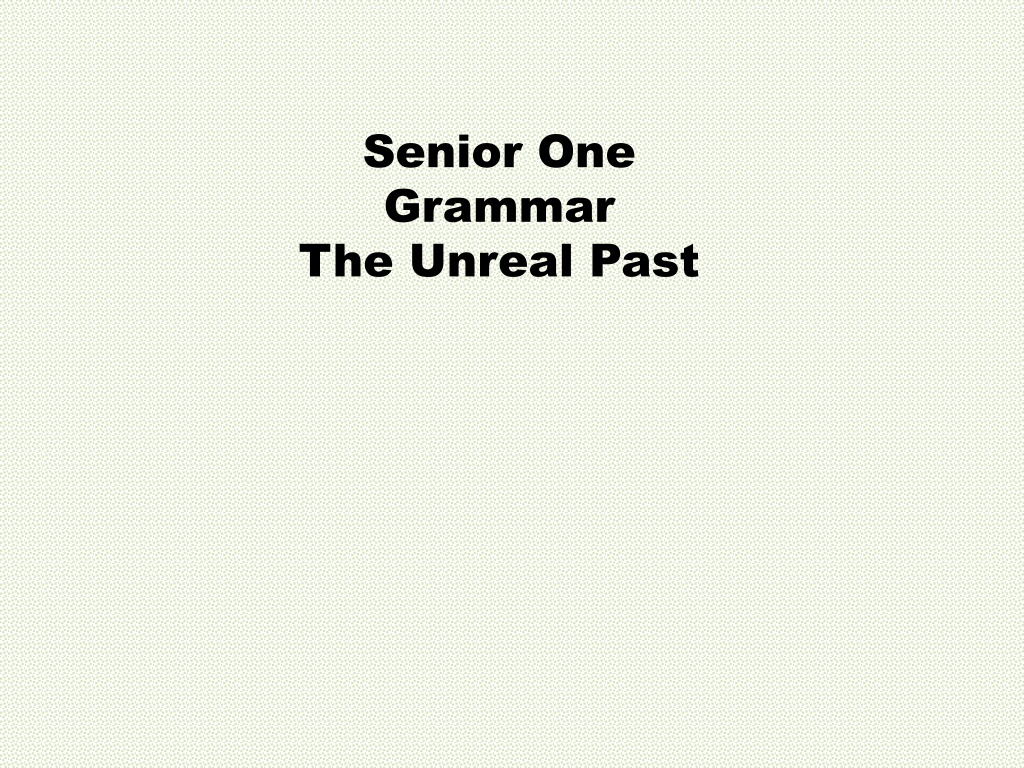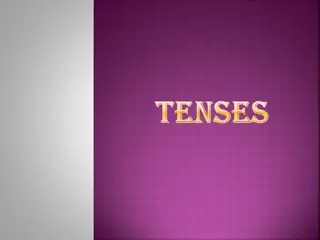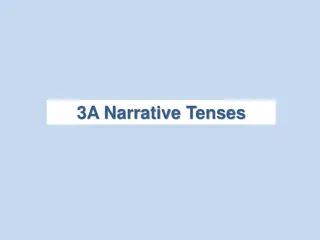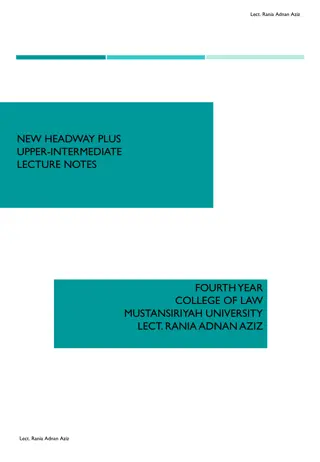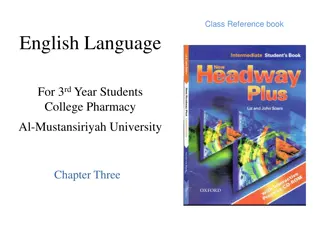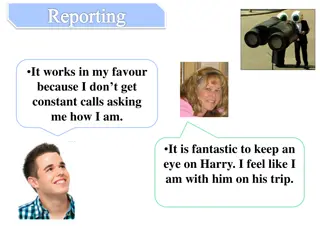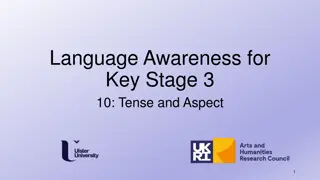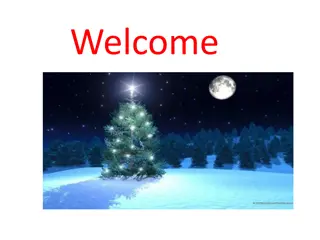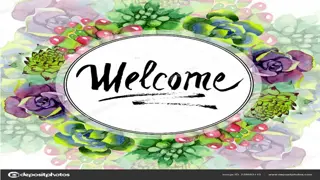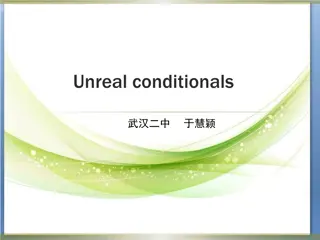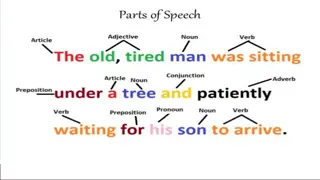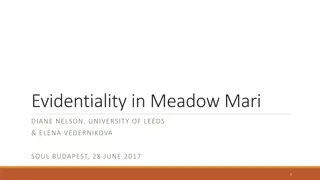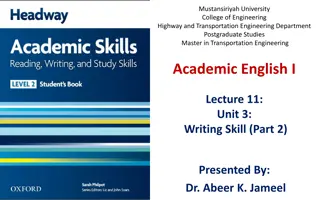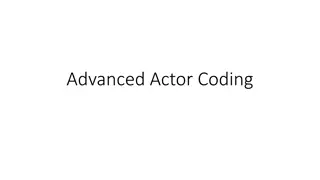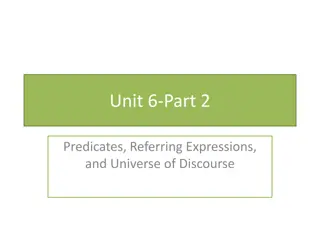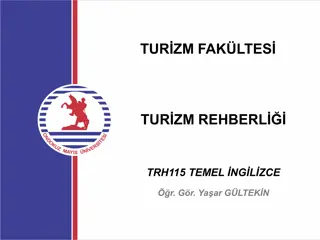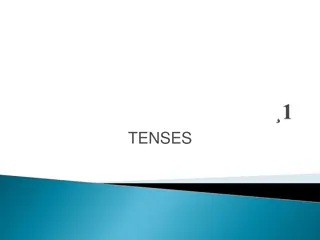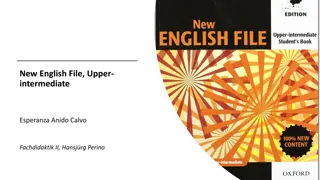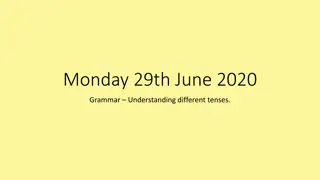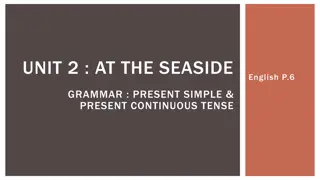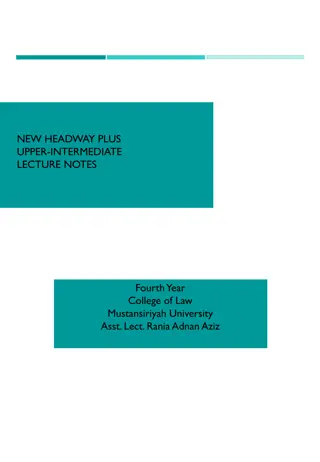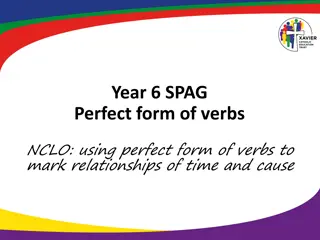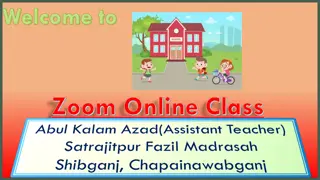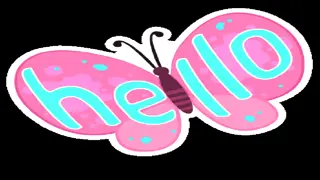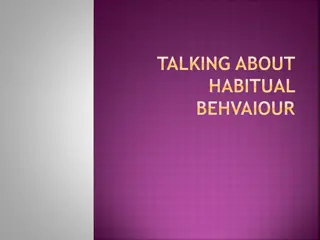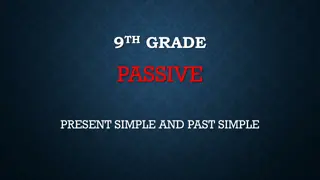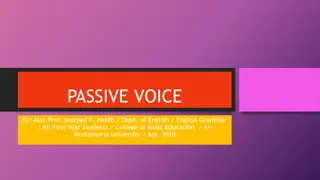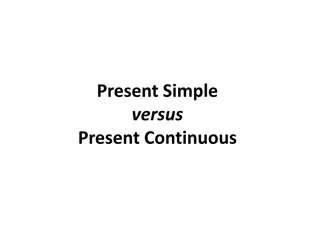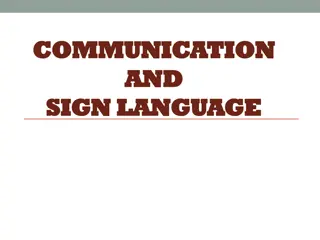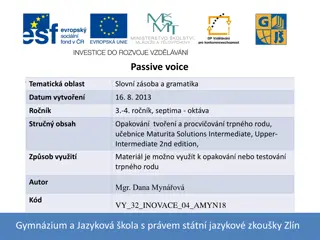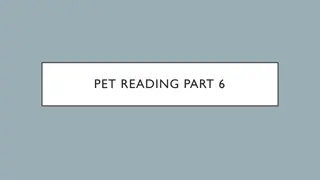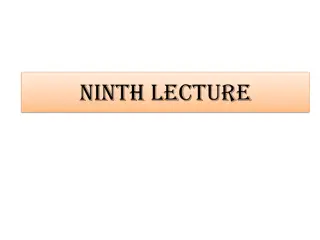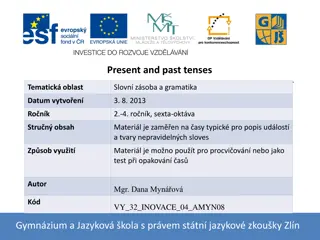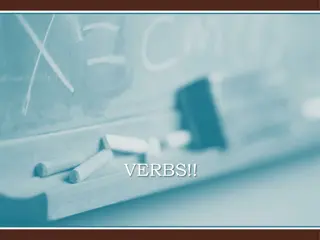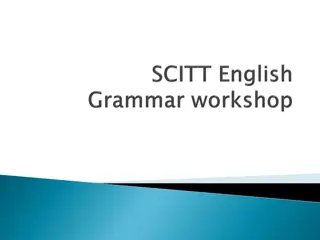Mastering Unreal Past Tenses for Effective Communication
Learn how to express unreal or imaginary situations using past tenses with expressions like "I wish," "If only," "Would rather," and more. Explore the nuances between different past forms to convey regret, criticism, preferences, and hypothetical scenarios. Enhance your grammar skills for clearer and more engaging communication.
Download Presentation

Please find below an Image/Link to download the presentation.
The content on the website is provided AS IS for your information and personal use only. It may not be sold, licensed, or shared on other websites without obtaining consent from the author. Download presentation by click this link. If you encounter any issues during the download, it is possible that the publisher has removed the file from their server.
E N D
Presentation Transcript
Senior One Grammar The Unreal Past
After some expressions, we use past tenses to describe unreal or imaginary situations. These ideas may refer to the past, present or future: I wish/If only We use wish/If only + past when we want a present situation to be different: I wish/If only we had more money. (but we haven't) I wish I was (formal: were) a bit taller. (but I'm not)
wish + would is used to express a wish for something to change in the present or future. We often use it to criticise or complain about someone or something: I wish you would wear smarter clothes. I wish the weather would improve. I wish + would cannot be used to refer to oneself: I wish I could (not would) stop smoking. (but I can't) We cannot use would for an impossible change: If only the earth was (formal: were) square.
We use Wish/If only + past perfect to express regret about a past situation: I wish we'd had something to eat earlier. (but we didn't) If only I hadn't missed my appointment. (but I did) Note: differences between I wish and If only: if only is usually more emphatic than I wish. We can put a subject between If and only for emphasis: If only you/If you only knew what I've been going through.
It's time We use It's time + past simple to say that something is not happening but it should be. It's time you went home. We can also use It's high time + past simple or it's about time + past simple. These are more empathic than it's time. It's high time she left her job! It's about time you found a job!
What if/suppose/supposing We use what if/suppose/supposing + past simple to ask about imaginary situations and their consequences in the present or future. These are similar to second conditional questions. What if you missed the plane? Suppose you got injured, what would the coach say? Supposing they gave you the prize, how would you feel? We can also use these expressions with the past perfect. This is similar to the third conditional. What if you'd failed your exam last week, what would you have done?
We use Would rather/Would sooner/I'd prefer + past simple to describe preferences. I'd rather you didn't play I'd sooner they finished the task on time. I'd prefer it if you didn't ask me for any more money. If the person expressing the preference is also the subject of the preference, we use the infinitive (NOT THE PAST TENSE). I'd prefer to watch a movie.
As if/as though We use if/as though + past simple to say that appearance is different from reality. She treats me as if I had a disease. (I know that I don't have a disease). They use this place as though it was a playground. (This place isn't a playground). We use the present simple/present perfect with these expressions when the situation may be true. He acts as if he knows what he's doing. (Maybe he knows what he's doing). You look as though you haven't slept for days. (Maybe she hasn't slept for days).
Exercise Correct the mistake: 1. It's high time you had gone out and looked for a job. . 2. I wish it isn t so late. I don't want to leave. 3. I wasted a lot of time at school. I wish I studied harder. . 4. I wish I have posted that letter yesterday. 6. I'd rather he come to the theatre with me this Saturday. . 7. I'd rather visited the museum last week.
